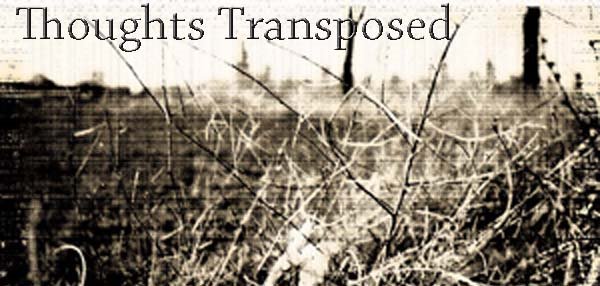Recently there have been a couple of lengthy articles in notable periodicals which spoke of the growing trend within the Protestant church toward traditionalism. The Church is renewing itself, this time not by dissing tradition as it did 100 years ago, but by embracing the liturgical and sacramental tradition of former generations. It seems Protestant congregations, particularly those in America and particularly those which reaching a demographic of 20-40somethings, are reevaluating their abandonment of traditionalism. Allow these authors to create context...
The first was printed in the U.S. News & World Report. Click Here.
To piggy-back onto this was a recent article in the Boston Globe. Click here.
Heightened social awareness, owed to globalization, media coverage, and perhaps the prophetic (a word I'm using casually) voices of Christian leaders like N.T.Wright, Jim Wallis, Fredrick Buechner and so forth, within the church has us looking to the previous church leadership who did it perhaps did "it" better - the people who lived among the people. The Catholic, Episcopalian, and Anglican priests and monks. Men and women whose adherence to scripted prayers (like the Book of Common Prayer), to following the Lenten calendar, to frequently partaking of the Lord's Supper did not prevent them from, necessarily, engaging with the social needs around them. An important fact for young Americans bent on being a civicly aware people.
This whole conversation topic is of interest to me because my church, Grace Chicago, began just five years ago almost as case and point of this increasing desire on the part of Jesus-believers to returned to a, albeit reformed, traditionalism. Our Sunday church service intentionally follows a narrative movement. Each week the story of Jesus’ life, death, and resurrection is retold a different way. Those who follow Jesus in faith and repentance meet the risen Lord in the sacrament of communion. The liturgy leading up to communion is anticipatory of Jesus’ redemptive (final) work in history. In a similar way, our music is a collection of eclectic styles and traditions alongside Scripture readings, homily, and other spoken words.
Also, as a church community we observe the Church calendar with its seasons of Advent, Epiphany, Lent, and Easter. We do this to help each other remember the redemptive rhythm of God’s presence in our lives. In any given day we metaphorically travel through these seasons as we grapple with grief, doubt, and temptation, and also celebrate joy and hope.
I can't help but think the depth, the beefiness, the profoundness of the liturgies of an earlier church coupled with a greater emphasis on the graciousness of the person of Christ has and will continue to minister to the current generation, and perhaps the next generation or two. It seems our generation feels a void left by disillusionment with the mainstream evangelical and mega-churches and by a Catholic Church that, on-the-whole, denies the necessity of a meaningful personal relationship with Jesus Christ.
Tuesday, March 25, 2008
Subscribe to:
Post Comments (Atom)


No comments:
Post a Comment